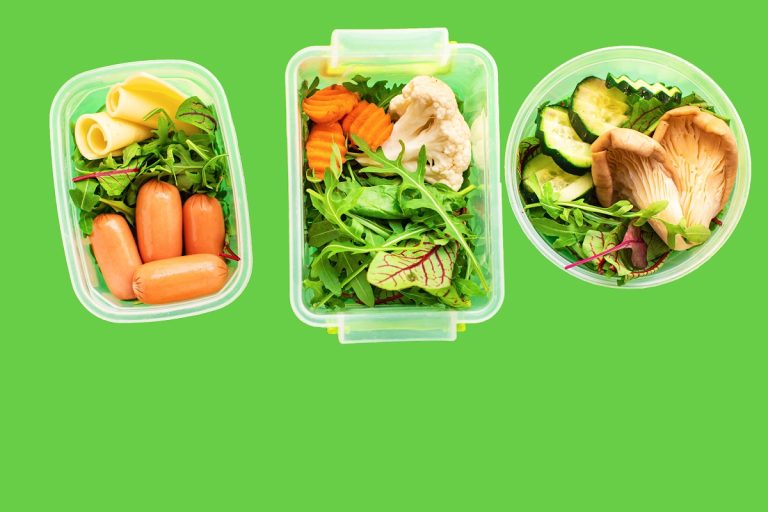- Familiarizing oneself with nutritional facts and understanding food labels can aid in making healthier food choices.
- Regulating portion sizes and including ample fruits and vegetables in meals can improve overall diet quality.
- Opting for whole grains and lean proteins can contribute to a balanced diet and offer substantial health benefits.
- Reducing the intake of processed foods and focusing on whole foods can significantly enhance nutritional intake.
- Prioritizing hydration by drinking plenty of water and consuming high water-content foods is vital for maintaining overall health.
As a health-conscious foodie, you might sometimes struggle to balance your love for delicious food with your wellness goals. But fear not! Adopting a few smart strategies allows you to enjoy delicious meals while nourishing your body. Dive into various top tips to help you make better food choices.
Educate Yourself
Knowledge is your best ally in making healthier food choices. Familiarize yourself with nutritional facts and understand what terms like “low-fat”, “sugar-free”, or “whole grain” actually mean. Learn to read and comprehend food labels – they reveal the truth behind the marketing claims.
Explore the nutritional values of different ingredients and understand how they impact your health. For instance, processed foods often contain high sodium and sugar levels, while whole foods are rich in essential vitamins and minerals. Utilize reputable online resources, and books, or consult a nutritionist to enhance your understanding.
Remember, the more you know, the better you can make informed decisions about what you eat. It’s not just about counting calories; it’s about understanding the nutritional value and the effect of each food element on your body.
Control Portion Sizes
Understanding and controlling portion sizes is another vital aspect of maintaining a balanced diet without compromising your love for food. Here are some tips to help you out:
Include Plenty of Fruits and Vegetables

Fruits and vegetables are nutritional powerhouses packed with vitamins, minerals, fiber, and antioxidants. Incorporating a generous helping of these in your meals enhances the nutrient content and adds volume, making you feel full without piling on too many calories.
Aim for at least five servings of fruits and vegetables each day. Add veggies to your breakfast by including them in omelets or smoothies. Make fruits your go-to snack between meals. Opt for a colorful salad as a main dish or a side, and include a variety of vegetables in your lunch and dinner.
Remember to consume a broad spectrum of fruits and vegetables to get diverse nutrients since each color represents different vitamins and minerals. Routinely changing your selection can also prevent boredom and ensure you enjoy your meals while staying healthy.
Opt for Whole Grains
Whole grains are an excellent source of dietary fiber and help maintain a healthy digestive system. Instead of refined grains, opt for whole grains like brown rice, quinoa, oats, whole-grain bread or pasta. They are minimally processed and retain most of their nutritional value. Whole grains contain B vitamins, antioxidants, and trace minerals like iron, zinc, copper, and magnesium.
A diet rich in whole grains has been shown to reduce the risk of heart disease, type 2 diabetes, obesity, and certain types of cancer. Consuming whole grains can also make you feel full and reduce cravings, helping in weight management.
So, ditch the white bread and choose whole grain products for a nutritious, satisfying meal. Remember to check the ingredients on the packaging to ensure that ‘whole grain’ is among the first few items listed.
Choose Lean Proteins
Protein is vital to a well-rounded diet as it aids tissue repair, muscle growth, and immune function. Lean proteins, such as chicken, turkey, fish, eggs, low-fat dairy, tofu, and legumes, are excellent choices as they provide the necessary proteins without the added unhealthy fats.
When it comes to red meat, opt for lean cuts, and consider grass-fed varieties known to have a more favorable ratio of omega-3 to omega-6 fats than their grain-fed counterparts. You can even buy grass-fed beef online, which brings convenience to maintaining a balanced diet.
Ordering grass-fed beef online saves time and gives you access to a wide range of cuts and products that might not be readily available in your local supermarket. While proteins are essential, they should be part of a balanced diet with ample fruits, vegetables, and whole grains.
Limit Processed Foods
Processed foods often contain high amounts of unhealthy fats, sugars, and sodium and are low in essential nutrients. Regularly consuming such foods can lead to health problems like obesity, heart disease, and diabetes. Cutting back on processed foods can significantly enhance your overall diet quality. Instead, focus on incorporating whole foods into your meals.
Whole foods contain beneficial fibers, vitamins, and antioxidants, including fruits, vegetables, lean proteins, and whole grains. They are closer to their natural state and provide more nutritional value. When it comes to ready meals, opt for those with short ingredient lists that include recognizable foods and avoid those with added sugars or unhealthy fats. Making most of your meals at home allows you to control what goes into your food, ensuring you feed your body with nutrient-rich meals.
Stay Hydrated

Hydration is a crucial yet often overlooked aspect of healthy eating. Drinking plenty of water supports various bodily functions, including digestion, nutrient absorption, and maintaining body temperature. It also helps keep your skin looking radiant and can aid in weight management by curbing hunger pangs.
Aim to drink at least eight glasses of water daily, but remember that individual hydration needs vary based on physical activity level, age, and climate. Besides water, you can also stay hydrated by consuming foods with high water content such as fruits and vegetables, and beverages like herbal teas and fresh fruit juices.
However, it’s advisable to limit the intake of sugary drinks and alcohol as they can lead to dehydration. Remember, a well-hydrated body is essential for overall health, so make water consumption a part of your daily routine.
In conclusion, adopting healthier food habits doesn’t mean sacrificing taste or satisfaction. Remember, it’s about making informed, mindful choices and maintaining balance. Keep yourself educated, control portions, prioritize whole foods, lean proteins, and stay hydrated. Start embracing these strategies today, and watch how your food choices positively impact your health.













